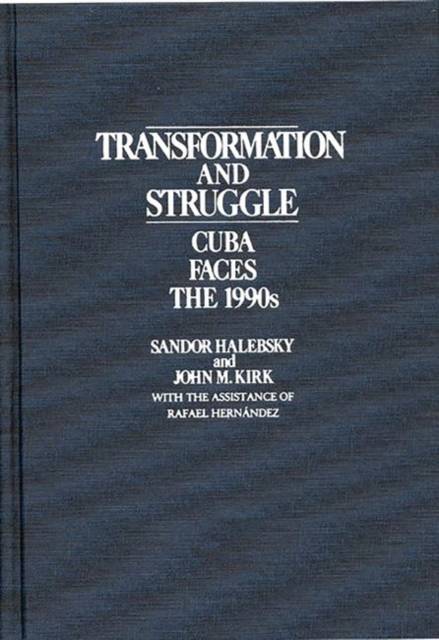
- Afhalen na 1 uur in een winkel met voorraad
- In januari gratis thuislevering in België
- Ruim aanbod met 7 miljoen producten
- Afhalen na 1 uur in een winkel met voorraad
- In januari gratis thuislevering in België
- Ruim aanbod met 7 miljoen producten
Omschrijving
This is the second of two volumes to bear witness to the Cuban experience. Together with its predecessor, Cuba: Twenty-Five Years of Revolution, it offers a positive account. Yet, it is sensitive to the dilemmas and flawed strategies in Cuba's thirty-year process of transformation. It warns that no preconceived notion of state or of development will help grasp the multifaceted nature of this nation, which reflects aspects of both developed and underdeveloped nations. Seventeen chapters, five of which are from Cuban contributors, thoroughly investigate recent political, economic, and social changes as well as the successes and failures of long-term development policies. Heavy attention is paid to the rectification process launched by Castro in 1986.
This volume portrays a Cuba facing the 1990s with a burst of increased vigor in its efforts to secure continued far-reaching transformation. Seventeen chapters describe major changes in the economic realm caught up in the rectification campaign; a slow process of liberalization in the political sphere; and a Cuba that, in social terms, is far better off than any other Latin American country.Specificaties
Betrokkenen
- Auteur(s):
- Uitgeverij:
Inhoud
- Aantal bladzijden:
- 324
- Taal:
- Engels
Eigenschappen
- Productcode (EAN):
- 9780275932275
- Verschijningsdatum:
- 9/04/1990
- Uitvoering:
- Hardcover
- Formaat:
- Genaaid
- Afmetingen:
- 156 mm x 234 mm
- Gewicht:
- 625 g

Alleen bij Standaard Boekhandel
Beoordelingen
We publiceren alleen reviews die voldoen aan de voorwaarden voor reviews. Bekijk onze voorwaarden voor reviews.









